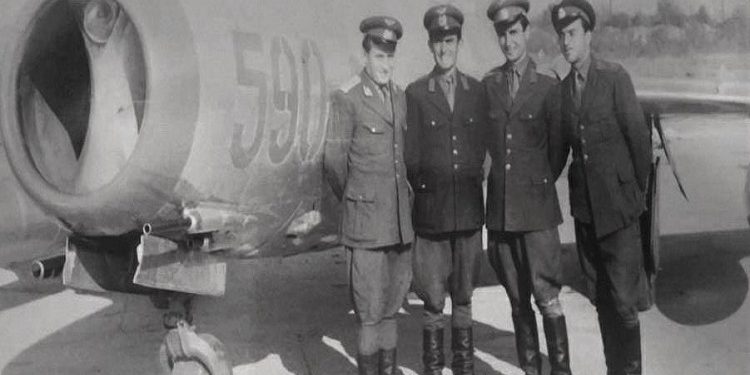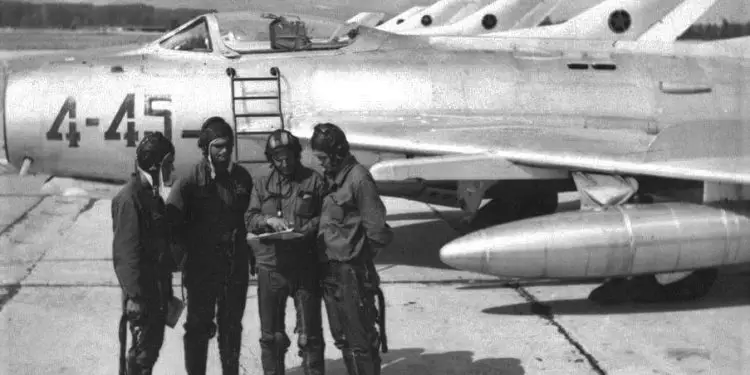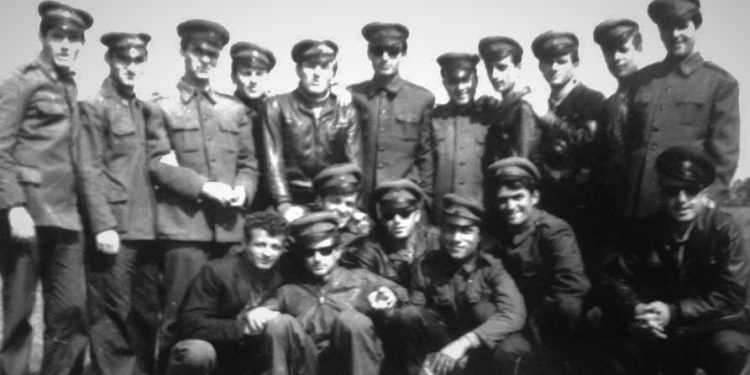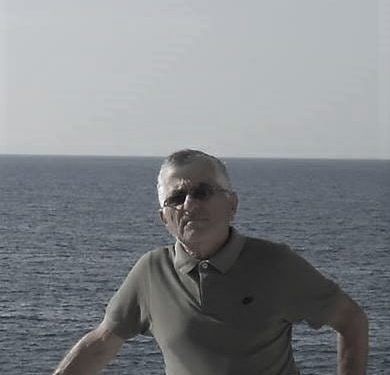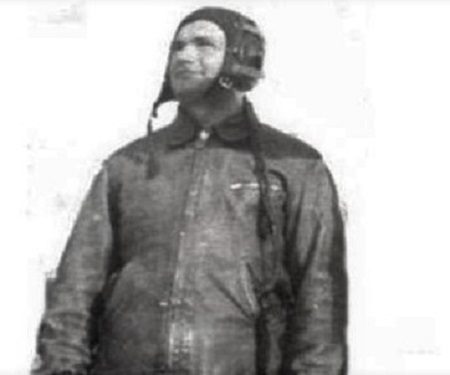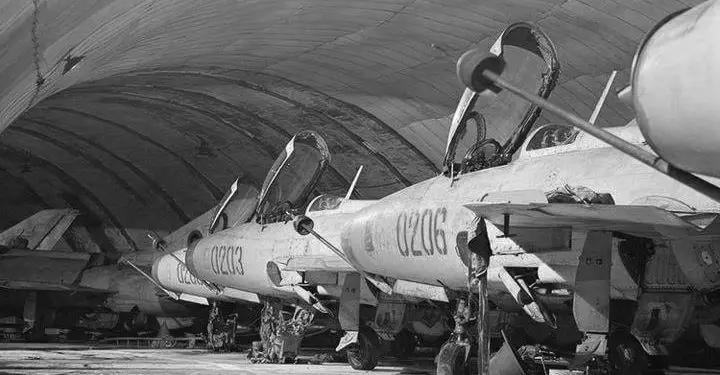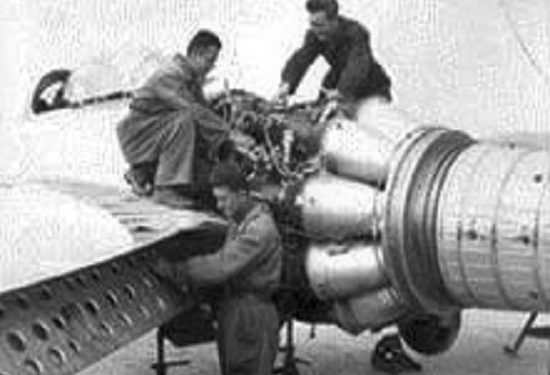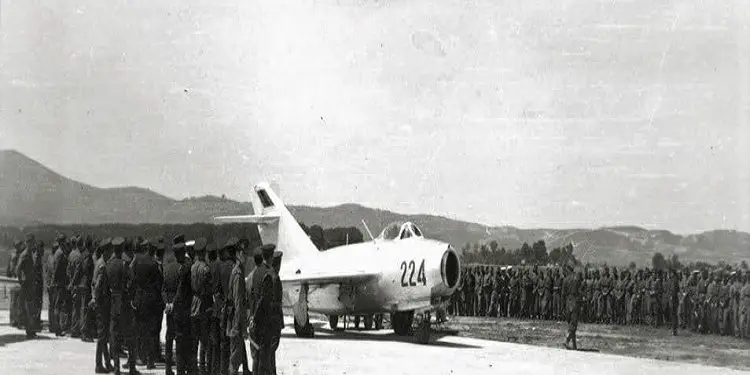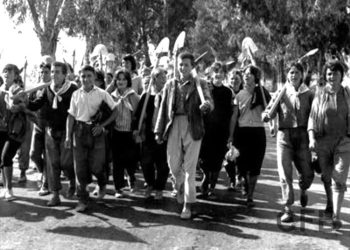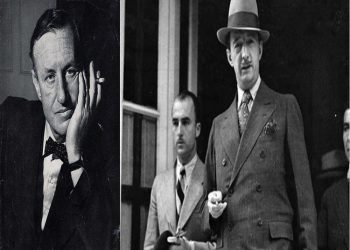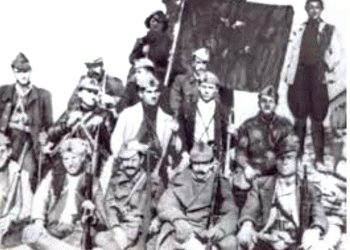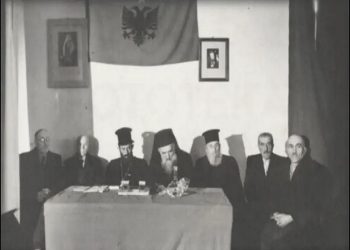By Niazi Nelaj
Part four
– At the Chinese Military Aviation School –
Memorie.al / Expelled from the Soviet School of Aviation, with dreams cut in half, part of the group of student pilots, who had studied for a year in the city of Bataysk, on January 8, 1962, after a “hell” cruise ”, with a cargo ship, we arrived at the center of China’s Third Military Aviation School in Chin Zhou City. It is located in the “heart” of Manchuria; at that time there were about 200,000 inhabitants. Without any prominent industry. A city with 2-3 story buildings but paved roads. The terrain around the city was plain; next to it are the Western shores of the Yellow Sea. One of the values of this city was the fact that it was the center of China’s Third Military Aviation School. My going to this school and that city was a lucky chance. In the list of 7 students of our course, which included: Adem Çeça, Dhori Zhezha, Mihal Pano, Bashkim Agolli, Andrea Toli and Sherif Hajnaj (Bracki), my name, Niazi Nelaj, was included, quite by chance?
Continues from last issue
Usta understood as much as he could understand from this way of communication and started work, full of joy, because the chance came to him at the door; he would shear, perhaps for the first time, a European. “The nephew” was sitting in the barber’s chair, like a “devil’s beauty”. He remained calm and waited for the “operation” never tried before. He waited and I contemplated the actions of the barber. I wanted to record his every move, out of curiosity, not because I would take his craft.
Master cut my friend’s rare wheat-colored hair, washed his head and dried it with a towel. He told him to sit back in the chair and started to shave him, without the customer’s order. After that I was surprised. The barber, with that big razor in his hand, which has a heavy and scary shadow, removed the “nephew’s” beard and started to shave her forehead. Terrible: I had never seen the forehead shaved. I started to move, in the chair where I was sitting; out of embarrassment. I was stressed by what caught my eye. I experienced some “horror” moments.
My friend, the barber could remove any organ and his face would be ugly forever. I “suffered” the barber, with a Chinese dexterity, like some prestige, rotated the big razor in his hand, without difficulty. After shaving his forehead, he moved to his ears and from there to his nose. He cut it all. When he started shaving his eyelids, to tell you the truth, a few shivers went through my body and I felt bad.
He no longer carried “pilaf water”. I watched, with frozen blood, the actions of the barber and, as if I wanted to do “iso”, I accompanied his agile movements with movements of my trunk. The Union rose and I sat in its place. Somewhat out of courage, more out of shame, I did what I did; I decided to “sacrifice you”. I was braved by Nipçe’s “masculine” attitude and went on an adventure.
I sat down in the chair and got comfortable. I was physically there, but my mind wandered elsewhere. I was thinking: What if he took out his razor and cut my nose or lips and left me like they left Guimplen, the Komprachikos, according to the famous novel of the great Victor Hugo, ‘The Man Who Laughs’. After he was taken from the chair and saved from that “hell”, “Nipçja”, again, with his hands and feet, asked the barber how much the service he did cost him. The figures were easily decipherable.
My friend paid 1 yuan for everything. With our money of that time, the amount was 60 ALL. I sat down and looked at myself in the mirror. As it seemed to me, I was yellow. Maybe from the unseen emotions. I motioned to the usta to cut my hair only. “Yes,” answered the Chinese, letting me understand that he understood what I told him. The barber happily started cutting my hair.
At that age my hair was quite thick, like a forest, rough and wavy. The barber, when he shaved my head, was sweating out of embarrassment. The barber, before inserting the scissors into my hair, ran his hand through my hair, noticed the ordeal that awaited him, said something in his own language, and got to work. He cut me as he wanted and as he knew; “Pollubox”.
If any old fool had seen me, in those moments he would have said: “I have shaved you like a pig (little donkey). When my friends asked me: Where did you go? I answered: “I found a carpenter, do you want me to show you?” It was certain that my friends would pass there, one after the other, because only that barber was in the garrison.
I was glad when the barber finished cutting and washing my head. He didn’t shave or cut me. My face came back; I escaped from that strange ordeal and from that great anxiety. I breathed a sigh of relief. No one can conceive of that kind of suffering without overcoming it. Wait, the wonder is not over. Before leaving the “shop” I asked the barber: “How much does the service cost?”
He, satisfied, squirming, raised two fingers up, as the “democrats” do in our country and said in his own language: “Ljang Juan”! Which means: 2 yuan? I was surprised. Not without some revolt, I turned to the master, with signs, showing him that my friend shaved and shaved before me and paid only 1 yuan. As much as I could, I tried to explain to the one who “tortured” us: head Union and head me, why should I pay twice?!
The Chinese, still frowning, and with typical Chinese calmness, said: “Your friend’s head is the size of a fist, and he showed his clenched fist; you have a big head, us…that’s it, and showed two open hands”. Even this, which I had not heard of and did not occur to me, I tried, in that hairdresser in the Asian Far East.
We realized that in China, the “fine” for cutting hair is proportional to the size of the head. The barber did not make any measurements for this, but, with his eyes and guesswork, he determined the price roughly. Soon, all the friends also learned this feature of Chinese behavior.
From that day, when we went to the barber, before sitting in his chair we only asked him to cut us. We used to shave ourselves. The sheriff grew a beard and mustache, and did not shave while we were at school. I keep a picture of him, from that time, with a beard and mustache. For the Chinese, leaving beards and mustaches by the military was not a problem.
As it seems, in the talks he had conducted and in the orders he had left, the commander of our Aviation had left this detail out of his attention. Even our “boss”, Ademi, has since then grown a long mustache and sideburns. Andrea Toli and I also left mustaches. Misha and Dhori did not support us in this venture.
The “nephew”, even if he wanted to, couldn’t grow a mustache and beard, because he was red and gray and they didn’t suit him. We benefited from the fact that in the regulations of the Chinese army, it was not stated whether or not it was permissible for soldiers to wear beards and mustaches. On our side, we also had the status of foreign military, which favored us.
I am taking a little longer by bringing the individual experiences of that time, far away, in an unknown place, as I want to share some curiosities and quench the reader’s curiosity, for that interesting “almost unknown world”.
Following our “guide” through the garrison, our generous companions took us to see the facilities where we would be fed. At first glance, everything was bright. The personnel involved in cooking the food, the environment where it was cooked, the dishes, the instruments (they themselves ate with chopsticks; they had brought us spoons and forks) and everything, was clean and in its place.
We shared the canteen with the Chinese pilots. Chinese cuisine is quite rich and has a varied assortment. We passed through the tables of the Chinese. At the end of the canteen were our tables. The tables of the locals were loaded with all kinds of dishes. With meat and without meat. There were also drinks on the table: (wine, beer and liqueur). Hard drinks were forbidden. To whet the appetite, there were several types of appetizers on the tables, on some long plates.
As for drinks, the Chinese pilots were served free soft drinks every day. They had a good summer; the beer was a bit strong. They happily drank the liqueurs, which, we could not look at with our eyes. We loved their wine and beer. We exchanged the liquor bottles that belonged to us for wine and beer from their ration. On the days when we had a flight, we didn’t drink. We used to collect bottles of beer and wine, to consume them on Saturdays and Sundays and on holidays.
The tables in the canteen were full of all kinds of dishes, but we could not eat them. The dishes cooked according to the Chinese tradition were not to our taste. In Albania and the Soviet Union, we were fed Mediterranean cuisine, which is “heavy” in cooking, but which we like. Chinese cooking was very different from ours. They ate, were satisfied and were very satisfied with the food that was served to them.
We lost our appetite as soon as we entered the canteen. When we looked at their dishes, on the table full of snails, shrimps, frogs, water turtles, something like worms, fried crabs, with one claw sticking out to catch them, etc., instead of whet our appetites , it was completely closed to us. We saw poultry, boiled and roasted, but we could not eat their meat.
Their meat was black and tasteless. We asked the chef why the poultry meat was black and he showed us how to slaughter and cook it. The Chinese did not slaughter the birds, at the neck, so that the blood would come out, but they pierced the palate and the blood remained inside the bird’s body. We saw with our eyes what was rumored to us that the Chinese eat everything that flies and everything that swims in the water.
Reptiles consumed them as food, one hundred percent. The snake was served to the dearest friends, as was the brain of the living monkey. According to the regions of the provinces, the population had different preferences. In the South, near Vietnam and Laos, the favorite food was said to be live monkey brain; in Manchuria, a region near Korea, the favorite was dog meat, etc. We will have occasion to talk about this matter later.
We often have the opinion that the Chinese eat mainly rice. Somehow, they consumed a lot of rice and cooked it almost like we do. We loved cooking rice, pilaf, mixed with eggs. It was served to us in a deep, overflowing bowl and we could take as much as we wanted, even multiple times.
Flamur Dede, a pleasant tyrant, from the ranks of students who had flown to Krasnodar as a flight attendant, when he filled his plate with pilaf cooked with eggs, he rubbed his stomach and said in Chinese: “Ta mi fan, hao che” that would say: “Rice with eggs – it’s good food”!
We often made fun of Muli, with his words, and he just laughed. In my opinion, those who ate rice in China were privileged and lucky people, like us pilots. The staple food of the Chinese at that time was cabbage. I have seen this with my own eyes and experienced it for 15 consecutive months.
The cabbages that the Chinese used as food were not round and white like in our country, but were small, elongated and green. Their preservation was done by laying them on the ground, in the form of easels, as apples or sugar beets are stacked and stored in the surroundings of Korça and in the surrounding fields.
Seeing the many opportunities that existed in our school to feed us healthily, we asked the military authorities of the aviation school to look for and bring to cook a cook who, if possible, had cooked for pilots and army personnel Soviet, when they had assisted the Chinese army, as specialists, in the 50s.
It took some time to find and bring a chef of this category to the school. The cook was found and he started cooking for us, according to our requests. Among our most favorite dishes were: fried potatoes, roasted chickens, butchered, as in our case, fried crabs, whose white meat we watched with our eyes, when the “master” called for help cooked it, pilaf with eggs and a roasted meat, without the taste of meat, which we were told is venison.
The color of this meat was a little like pink and we suspected. What made us suspicious in this matter was related to the fact that we were located near the Korean peninsula, whose population consumed dog meat as a favorite food. Our suspicion was confirmed very quickly and quite by accident.
On an ordinary evening, when darkness had fallen over the city, in the intervals between study hours, I was walking around the military garrison with 2-3 friends of the group. As it usually happens in these cases, we passed the sports field and entered the basement, behind the kitchen and the boiler. On a pile of unburnt coal, one of us saw a skin.
We got close; one of us grabbed him and lifted him up, with the help of a crowbar he found nearby. The color of the skin was gray and the body of the slaughtered animal was clearly small. Our attention was drawn to the fact that the head was shaved but there were no horns on it. We knew that the roe deer had horns, so we did not pass it without paying attention to this fact. Then we opened the animal’s paw and saw that the toes ended in some nails, like a dog’s. One of us unfolded the skin and together we came to the conclusion that we had a dog skin in front of us. There was no doubt that we were dog fed.
We referred what we saw to the school’s logistics managers, with notes of protest. The highest in rank, laughing, said: “Go, go, zhou go hao çe”, which, in our language, means: “Dog, dog, dog meat is delicious”. We did what we did, we also got used to consuming “roe” meat.
During my stay in China, I did not see milk; or its by-products. When we told this to the managers and asked for milk, we got the answer: “We don’t have milk for small children”! The answer we received left no room for comment or interpretation. They don’t say for nothing: “When there is none, not even the king eats”!
My friends and I, especially Dhori Zhezha, whom we nicknamed “Chinese”, got very close to young local soldiers and officers. To learn the language and to know something more about their lives. One day I was talking to a soldier. He was a pretty boy, tall, handsome, healthy and strong. Worked as an airplane mechanic.
I have a hard time remembering his name, even though they resembled each other: Li called one e, Li the other. As in Kashnjet, where the name Zef is the most widespread. The boy, after finishing high school, with an above average level, instead of going to university, preferred to join the army.
His preference, in this case, was related to the fact that in the army, at least food was provided. This was not a single or sporadic case. In the China of over 1 billion people, at that time, the matter of nutrition was not an easy one. Therefore, many young people, after finishing high school, showed the desire to go to the army.
The rice fields in China are endless. When you cross the road, by train, from South to North, you will notice plots planted with rice and fields with wheat, leguminous plants, legumes, black cumin, etc. bread grains, which are cultivated on a scientific basis, give unprecedented yields. You don’t see the sown fields only in the field, but there, in every province and region, the hand of man has done miracles. Only the Chinese could embroider the mountain with bands, so beautifully, transporting the soil from a distance, at a distance of several kilometers, with several baskets woven with reeds and other bushes.
Greenery in China accompanies you everywhere, from Canton to Chichikar and from Port Arthur to the Western areas where the Uighurs lives. Production of bread grains and agricultural products in general in the last three years, due to the prolonged drought, had fallen and the food of the population had been put into difficulty.
Many may be surprised, may even not believe, when they read through the lines of this story that the Chinese do not know bread. We are Balkans and we have a weakness for bread. It is difficult for us to imagine how a person can be fed without using bread. There were some of our people who had to accompany every meal, even pilaf, with some bread. Otherwise it was not enjoyed.
When we were in the Soviet Union, we were forced to consume less bread; but in China, we did not look at bread with eyes. But in the Soviet Aviation School, potatoes and cabbage replaced bread, and cooking was done with fat, which in the conditions of that cold was to some extent justified. In China, their dishes did not stick to us. We asked for bread.
They brought us some “balls” of dough, steamed, without salt or taste. Even though we didn’t like them, we were forced to consume them, willingly or unwillingly. He found us as what they say: “When you don’t have the chicken; eat the crow too”! The crow was among the favorite birds for the Chinese. They consumed it willingly. Memorie.al
The next issue follows




